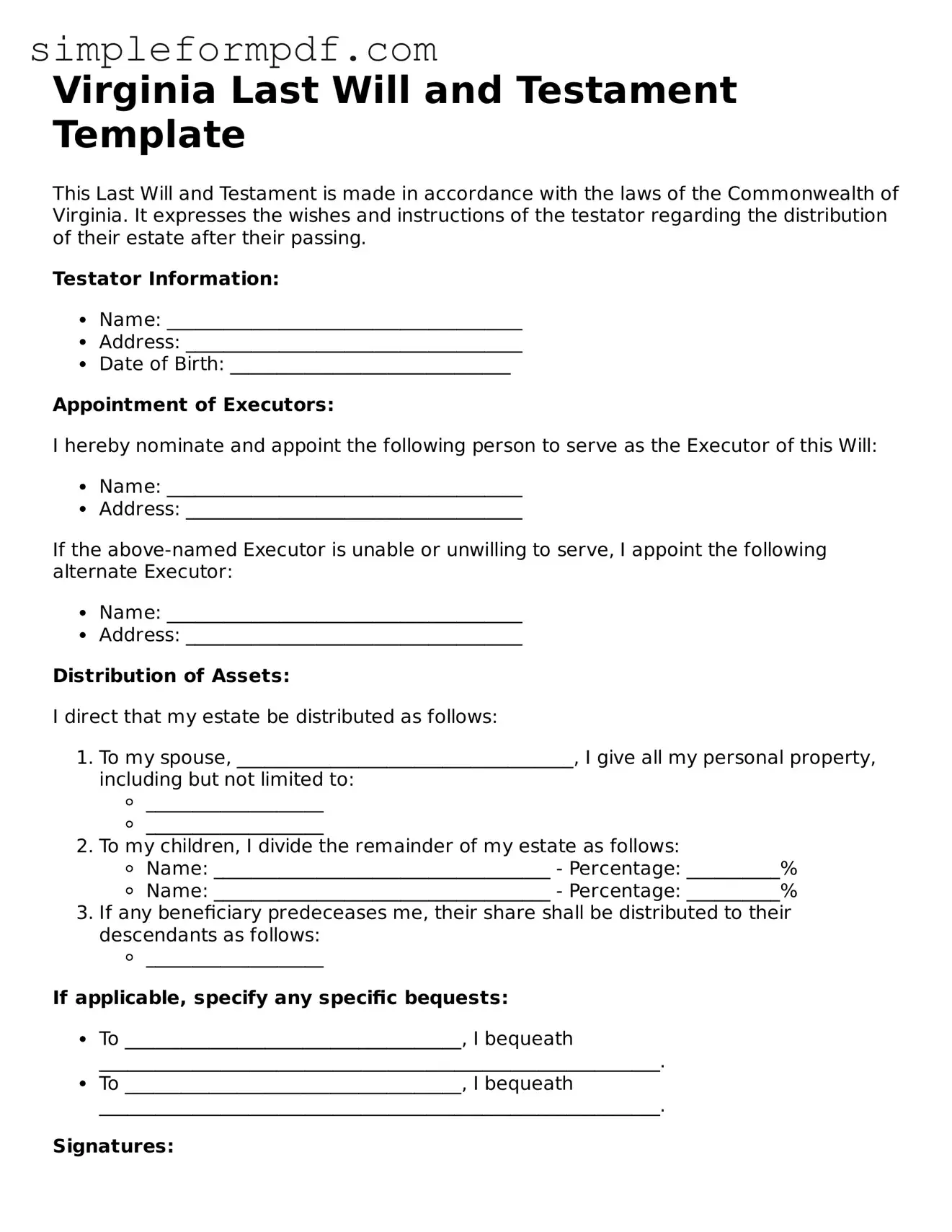Virginia Last Will and Testament Template
This Last Will and Testament is made in accordance with the laws of the Commonwealth of Virginia. It expresses the wishes and instructions of the testator regarding the distribution of their estate after their passing.
Testator Information:
- Name: ______________________________________
- Address: ____________________________________
- Date of Birth: ______________________________
Appointment of Executors:
I hereby nominate and appoint the following person to serve as the Executor of this Will:
- Name: ______________________________________
- Address: ____________________________________
If the above-named Executor is unable or unwilling to serve, I appoint the following alternate Executor:
- Name: ______________________________________
- Address: ____________________________________
Distribution of Assets:
I direct that my estate be distributed as follows:
- To my spouse, ____________________________________, I give all my personal property, including but not limited to:
- ___________________
- ___________________
- To my children, I divide the remainder of my estate as follows:
- Name: ____________________________________ - Percentage: __________%
- Name: ____________________________________ - Percentage: __________%
- If any beneficiary predeceases me, their share shall be distributed to their descendants as follows:
If applicable, specify any specific bequests:
- To ____________________________________, I bequeath ____________________________________________________________.
- To ____________________________________, I bequeath ____________________________________________________________.
Signatures:
In witness whereof, I have hereunto subscribed my name this ____ day of ____________, 20__.
______________________________
Signature of Testator
Witness Attestation:
We, the undersigned witnesses, do hereby certify that the above-named Testator signed this Last Will and Testament in our presence, and that we are not beneficiaries under this Will.
- ______________________________
Signature of Witness 1
- ______________________________
Signature of Witness 2
Notary Public (if desired):
State of Virginia
County of ________________________________
On this ____ day of ____________, 20__, before me, a Notary Public, personally appeared ______________________________, known to me (or satisfactorily proven) to be the person whose name is subscribed to this document, and acknowledged that they executed the same for the purposes therein contained.
______________________________
Notary Public
My Commission Expires: ____________________________

